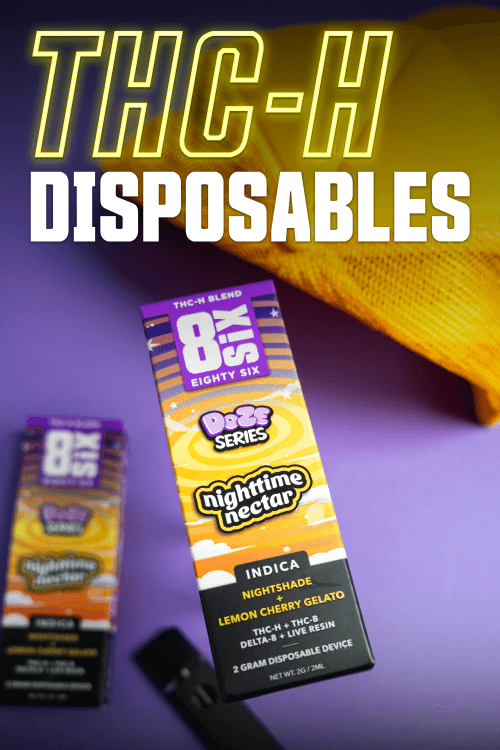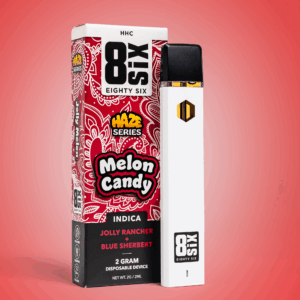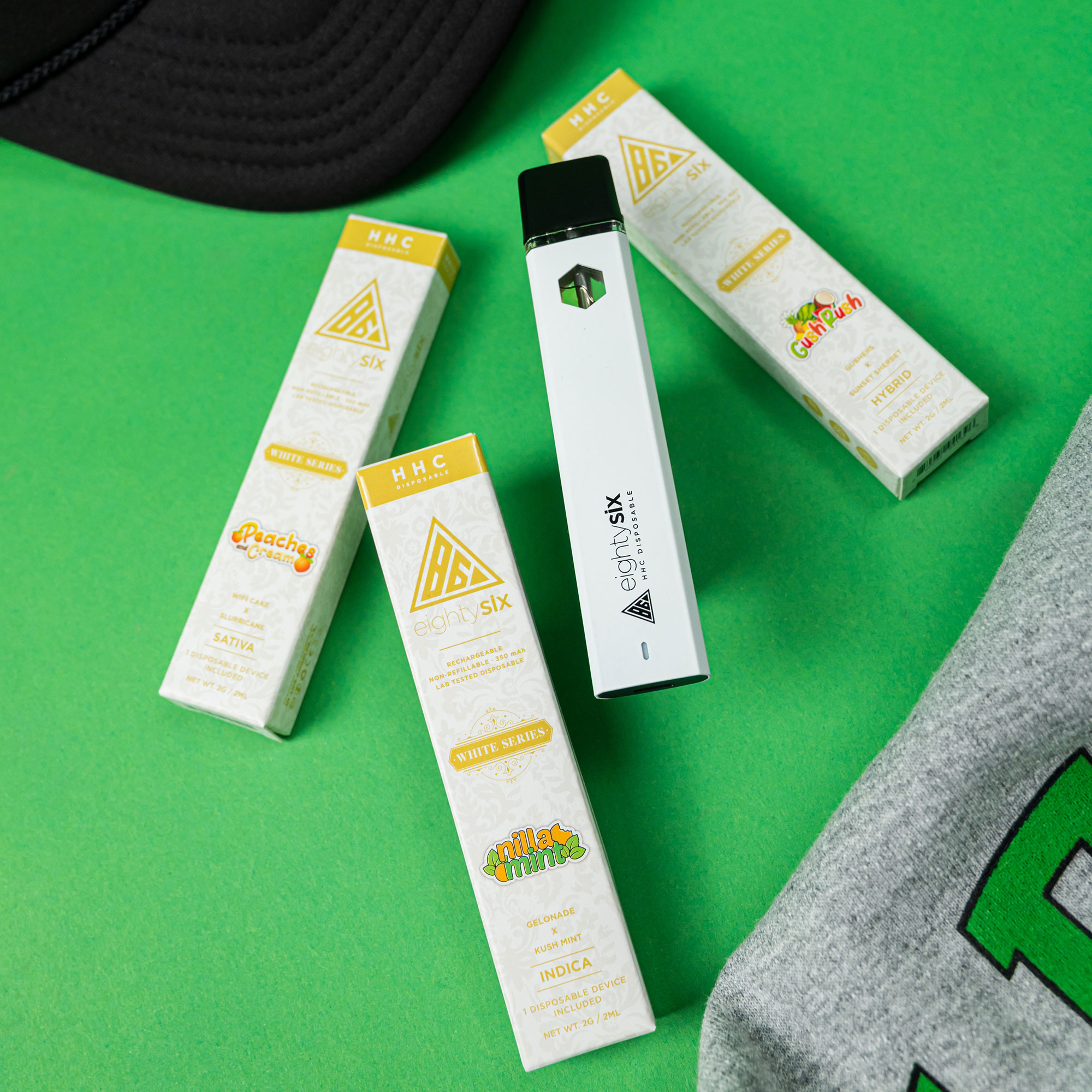Just when you think you’ve figured it out, consuming cannabis continues to evolve. And so, too, does the emergence of novel cannabinoids. Namely, HHC is the one that’s garnering interest among consumers seeking an alternative. With this interest, comes the need to understand more about HHC and your body. For example, how long does HHC stay in your system? Will HHC show up on a drug test? We aim to answer these questions and more in our guide. Let’s get started.
Brief Summary: What is HHC?
In short, HHC, or hexahydrocannabinol, is a synthetically derived cannabinoid. It shares structual similarities with traditional Delta-9 THC. While THC naturally occurs in cannabis, one can convert it to HHC in a laboratory setting.
Like THC, HHC interacts with our body’s endocannabinoid system and produces psychoactive effects. Due to its lab-crafted nature, how long HHC stays in your system can vary from the more naturally occurring compounds.

6 Factors that Affect the Duration of HHC in Your System
Several factors influence how long HHC (and any other cannabinoid) stays in your body.
- Dosage & Frequency of Use – Frequently consuming HHC or consuming high doses can prolong how long it’s in your system.
- Individual Metabolism – Of course, metabolism varies among individuals. That can drastically affect how quickly the body processes and eliminates HHC. Note – factors such as age, weight, genetics and overall health can influence metabolism.
- Body Fat Percentage – HHC is fat-soluble like THC, meaning it can accumulate in fatty tissues. Those with higher body percentages may keep HHC for longer.
- Consumption Method – How you consume HHC impacts its absorption rate. Inhaling it may result in a quicker onset but a shorter duration. Meanwhile, edibles may take longer to take effect but last longer, too.
- Hydration Levels – Adequate hydration can support the body’s natural detoxification processes. That may speed up the elimination of HHC and its metabolites through urine.
- Liver Function – The liver plays a crucial role in metabolizing cannabinoids like HHC. Any impairment in liver function may affect how you metabolize HHC.
These factors can provide insight into how long HHC may remain detectable in your body. From there, stay informed and aware of potential drug testing scenarios.
So – How Long Does HHC Stay in Your System?

How long HHC remains detectable varies significantly depending on several factors. We already mentioned some of these variables. However, it’s important to note the detection window of HHC and how that can vary depending on the type of drug test.
Detection Window of HHC in Different Body Fluids/Tissues
Let’s look at how various bodily fluids/tissues may result in varying lengths of time.
Urine
The most common drug tests are urinalyses. These tests may detect HHC and its metabolites for a longer duration than blood tests. The duration ranges from several days to a few weeks after your last HHC use. This timeframe varies based on your frequency of use, individual metabolism, and more.
Saliva
Saliva tests aren’t too common, but they may detect HHC for a shorter period than urine can. Generally, saliva tests can only detect up to a few days after your last use.
Hair
Hair follicle tests may be the drug tests that can detect for the longest period. These tests may detect HHC several weeks to several months after your last use. It’s a way to test for more prolonged patterns of drug use (although not directly for HHC use).
Blood
Finally, HHC is typically detectable in the blood for a relatively short time. Usually, these tests can only detect use from within a few hours to a couple days after your last dose.
Regardless of the type of drug test scenario, it’s essential to note that these detection windows are estimates. Individual variability and the factors we’ve mentioned can significantly influence these timelines. Moreover, advancements in drug testing may impact detection capabilities over time.
Understanding all these factors can help users navigate potential detection risks. From there, you can make a more informed decision about consuming HHC.
Will HHC Show Up on a Drug Test?
As we’ve shared, whether HHC shows up on a drug test depends on several factors. These include the type of drug tests, detection thresholds, and what substances the test is screening.
Standard Drug Tests
Traditional drug tests include urine tests commonly used in workplace drug screenings. They often target specific compounds, like THC and its metabolites. Since HHC is a cannabinoid distinct from THC, it might not show up on a standard drug test. It must be specifically included in the panel to show up.
Extended Drug Tests
Some specialized drug tests may include synthetic cannabinoids like HHC in their panels. These tests can detect a broader range of substances. It HHC is on the testing panel, the test will likely detect it if your last use is within the detection window.
Cross-Reactivity
It’s worth noting: some compounds, like HHC, may display cross-reactivity with antibodies in some drug tests that detect THC. That means the test may not directly target HHC, but it could still trigger a possible positive result. Confirmation testing can often differentiate between the two, though.
Hair Testing
As mentioned, hair follicle tests have a longer detection window. They can detect a broader range of substances, especially compared to urine tests. Therefore, if HHC has been used within the detection window of a hair test, it might be detected.
Closing Thoughts
So, will HHC show up on a drug test? In summary, it depends on the drug test. How long does HHC stay in your system? That depends on factors that involve you. Frequent, consistent use will make any compound stay in your system for longer. Moderation is key, so be sure to enjoy HHC at your leisure.
Fortunately, HHC won’t show up on every drug test. That gives you more options to explore and enjoy. Try HHC products from our Haze Series today to discover your next favorite cannabis compound.







